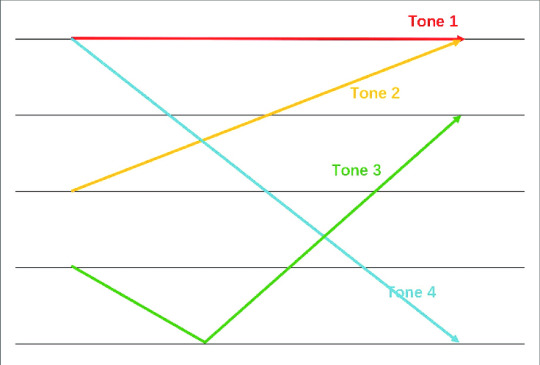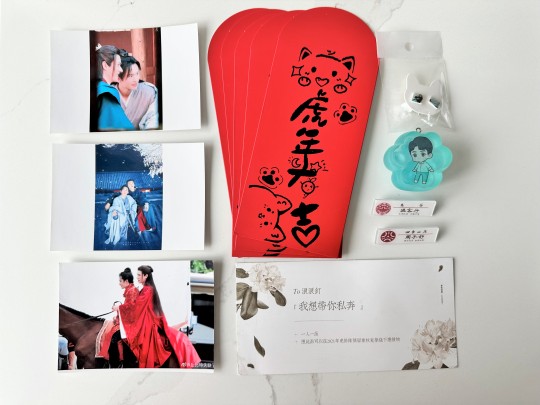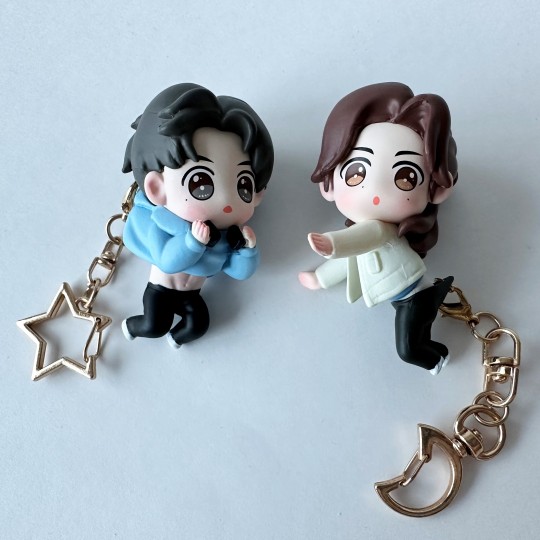#hsk 4 course
Text
HSKK Intermediate Course in Delhi
Learning a new language opens doors to exciting opportunities, and mastering Chinese can be particularly rewarding. Whether you are interested in exploring Chinese culture, advancing your career prospects, or simply challenging yourself intellectually, the HSKK Intermediate course is a remarkable pathway to elevate your Chinese oral proficiency.
Introduction to HSKK Intermediate Course
The HSKK Intermediate course is designed for individuals who have achieved an intermediate level of Chinese language proficiency and wish to enhance their oral communication skills. The course is tailored to prepare candidates for the HSKK Intermediate exam, a renowned assessment of speaking proficiency in the Chinese language.
Why Choose the HSKK Intermediate Course?
1. Focused Oral Proficiency Training
The primary objective of the HSKK Intermediate course is to refine your spoken Chinese abilities. With expert guidance and structured lessons, you will develop clarity, fluency, and confidence in expressing yourself in various real-life scenarios.
2. Comprehensive Curriculum
The course curriculum covers all aspects of the HSKK Intermediate exam, ensuring that you are well-prepared for each section: Introduction, Short Speech, and Extended Speech. Emphasis is placed on vocabulary expansion, grammar comprehension, and effective communication strategies.
3. Experienced Instructors
Our HSKK Intermediate course is led by experienced instructors who are native speakers or highly proficient in the Chinese language. They are dedicated to providing personalized attention, constructive feedback, and continuous support throughout your language journey.
4. Interactive Learning Environment
Learning a language should be engaging and enjoyable. Our HSKK Intermediate course incorporates interactive activities, role-playing exercises, and group discussions to make the learning process dynamic and effective.
What to Expect from the HSKK Intermediate Course?
1. Building a Strong Foundation
Before delving into the specifics of the HSKK Intermediate exam, the course focuses on reinforcing your foundational Chinese language skills. This step ensures that you have a solid understanding of basic grammar rules, sentence structures, and essential vocabulary.
2. HSKK Exam Structure and Preparation
You will gain a comprehensive understanding of the HSKK Intermediate exam format and requirements. Mock tests and practice sessions will familiarize you with the exam’s time constraints and help build your confidence for the actual assessment.
3. Enhancing Speaking Skills
The core of the course revolves around honing your speaking skills. Through regular speaking practice, you will learn to articulate your thoughts clearly, respond to questions effectively, and present extended speeches coherently.
4. Targeted Feedback and Improvement
Our instructors provide detailed feedback on your performance, highlighting areas for improvement. You will receive personalized study plans to address weaknesses and capitalize on strengths, ensuring constant progress.
Is the HSKK Intermediate Course Suitable for You?
The HSKK Intermediate course is ideal for individuals who:
Have completed the HSK Level 3 or have attained an intermediate level of Chinese proficiency.
Desire to enhance their spoken Chinese skills for personal or professional growth.
Plan to take the HSKK Intermediate exam for academic or career purposes.
Conclusion
The HSKK Intermediate course offers a transformative language learning experience, equipping you with the necessary skills to communicate fluently and confidently in Chinese. Whether you aspire to explore new career opportunities, immerse yourself in Chinese culture, or expand your linguistic horizons, this course will set you on the path to success. Embrace the journey of mastering the Chinese language and unlock a world of possibilities.
0 notes
Note
What are those apps you usually post in your productivity updates?
hi! here's a breakdown of apps i use, as well as websites and other resources i've used/use for my learning (mainly chinese, though some of these resources can be used for other languages as well).
apps i use every day:
dot languages: this is a chinese-specific app where you select your hsk level, and then read articles at that level. there's a pop-up dictionary, an option to show pinyin, post-article vocab practice (audio, matching, translation, and writing), and the option to have your articles either in simplified or traditional.
TOFU learn: a blend between flashcards and writing, you can find decks for various things, including hsk level-specific decks, and you learn new vocab with the stroke order and then write each new term three times—once with an overlay (so the term is visible), and then two times from memory. there's also a review function, which helps you practice terms you've already learnt, and each term has audio that goes with it. i use it for chinese, but there's decks for esperanto, french, german, italian, japanese, korean, norweigian, portuguese, russian, spanish, swedish, and turkish.
the pleco dictionary app: my favourite chinese dictionary app; allows you to translate from english to chinese or chinese to english, has options for writing, radical, vocal, and keyboard entry, and has both traditional and simplified characters.
ankiapp: this one's not particularly complicated; it's a flashcard app, where you can make your own decks or download decks other people have made. it uses a spaced repetition system to help you remember terms—you rate yourself from worst to best on how well you remembered the term, and that determines how many times it'll pop up afterwards. it also gives you an overall grade for each deck, which is a nice way to measure your progress.
duolingo: probably my least favourite of all of the apps i use; the chinese course isn't the best, and now that they've removed the notes/grammar information option, there's no way for people who aren't already fairly familiar with the language and its inner workings to learn them if they exclusively use duolingo. it's okay for maintenance practice, though, but i'm already almost finished with the entire course and i would say it barely reaches to lower hsk 4, so i wouldn't say it's a good tool if you're more advanced.
apps i have but use less often:
readibu: this is sort of like dot in that it's an app for reading in chinese with a pop-up dictionary. however, that's where the similarities end; readibu has novels, short stories, and articles aimed at children, and each of those are further split into genres. readibu also lets you add your own web-pages and read them on the app, so you can use its pop-up dictionary with them. it's aimed more to intermediate and upper intermediate learners, with hsk levels ranging from hsk 4 to hsk 6. the only reason i rate dot above readibu is because dot has a larger range of levels (hsk 1 through hsk 6 i believe? but it may go higher) and exercises built in to help you learn the vocab.
the chairman's bao: also a chinese reading app, though if you use the free version, you only get one sample article per hsk level (hsk 1 - hsk 6). i believe that every so often you get a new sample article for each level, but i'm not sure what the interval on that is. it also has a pop-up dictionary and a flashcard option for saved vocab.
du chinese: another chinese reading app; it has articles divided into newbie through master (six levels in total, though they don't line up perfectly with the hsk in my experience), and new articles are free for a certain period of time before becoming locked behind a paywall. there's a pop-up dictionary and a vocab review/test option for vocab you save.
memrise: flashcards with audio, depending on whether you're using an official course or a user-generated deck. decent, but it can get repetitive.
hellotalk: not exclusively chinese, but i believe it started off mainly aimed that way. you set your language, and then your target language, and then you can talk to native speakers who have your language as their target language. potentially incredibly useful, but if you're like me and extremely introverted you may have a hard time using this app, since it requires a lot of one-on-one interaction.
slowly: i haven't actually gotten around to using this, but it's sort of like a digital penpal app, as i understand it. you can learn more about it here.
websites and other miscellanea:
this massive mega drive by @salvadorbonaparte (languages, linguistics, translation studies, and more).
this masterpost by @loveletter2you (linguistics, languages, and language learning books/textbooks).
this masterpost on chinese minority literature by @zaobitouguang
the integrated chinese textbooks by cheng and tsui, which are the textbooks i use for self-study—there's textbooks and workbooks, as well as character workbooks (though these can easily be cut out without suffering from the loss).
mandarinbean: graded readers, hsk 1 - hsk 6, with a pop-up dictionary and the option to read in traditional or simplified
chinese reading practice: reading, beginner through advanced (three levels), with a pop-up dictionary and some additional notes included on vocab and language-specific things non-native speakers might struggle with or not know.
hsk reading: graded readers, hsk 1 - hsk 6, divided into three sections (beginner, intermediate, advanced). does not have a pop-up dictionary, but does have an option to translate the text, post-reading quizzes, and notes on important vocab with example sentences.
my chinese reading: reading from beginner to advanced (four levels); has a pop-up dictionary, the option to play an audio recording of the passage you're reading, notes on key words, things that are difficult to translate, grammar, and post-reading comprehension questions.
the heavenly path notion website, which i would say is one of the best resources i've ever found, with a massive number of guides, lists of chinese media in a variety of forms, and general resources.
chinese character stroke order dictionary: what it says on the tin; will show you the stroke order for a given character.
hanzigrids: allows you to generate your own character worksheets. i use this very frequently, and can recommend it. the only downside is if you want to create multiple pages at once, you have to pay; however this can easily be circumnavigated by creating only one sheet at a time. you can download the sheet as a pdf and print it out for personal use.
21st century chinese poety: a resource i only came across recently; has a massive collection of contemporary chinese poetry, including translations; much more approachable than classical poetry, which can often be incredibly dense and hard to parse due to the writing style.
zhongwen pop-up dictionary: if you're reading something in chinese on a website that doesn't have a pop-up dictionary, this is a must. i've never encountered any words that it doesn't have a translation for so far, including colloquialisms/slang. i use it to read webnovels, and it's been a fantastic tool. you can also save vocab by hitting the r key when you're hovering over a word/phrase, making it easy to go back and add terms to your flashcard deck(s).
chinese reading world: a website put together by the university of iowa; split into three levels (beginner, intermediate, and advanced), with thirty units per level, and ten modules per unit, as well as multiple proficiency tests per level. each module is split into three parts: a pre-reading vocab quiz, the reading with a number of comprehension questions based on it, and a post-vocab reading quiz. it also rates you in relation to someone with a native proficiency based on how quickly you read and answer the comprehension questions, and how many vocab questions you get right.
jiaoyu baike: an extensive chinese-to-chinese dictionary, put out by the taiwanese ministry of education. you can find an extensive write-up on it here, by @linghxr.
social media etc: see this post by @rongzhi.
qianpian: another chinese-to-chinese dictionary; @ruhua-langblr has a write-up on it here.
this writeup on zero to hero by @meichenxi; initially aimed at chinese learning, but now has expanded greatly.
music rec's: this masterpost by @linghxr.
tv/film: youtube is a great place to find chinese tv shows and films, and they often have english subtitles. if you can't find something on there, though, you can probably find it either on iqiyi or asianvote, which have both chinese and other asian shows and films (though you'll want an adblock if you're going to use the latter). i use these a lot to watch things, and have discovered a lot of media through these, and then novels through those when i went searching to see what they were adapted from.
polylogger: a website for logging the amount of time/type of language study you do. has a wide variety of languages, and the option to follow other people. still, it's a fairly basic site.
#chinese langblr#chinese language#chinese learning#langblr#chinese#mandarin#langblr resources#resources#汉语#indigostudies#inbox#indigo ink
314 notes
·
View notes
Text
Today I finished the last available level on SuperChinese, which is an app that I strongly recommend to study Mandarin. I paid for the full version because they offer a good price after the one-week trial (around €50/year) and I'm very satisfied.
The app offers reading, listening, vocabulary, grammar, and pronunciation exercises in everyday contexts. The pronunciation part is really helpful, since it rates how well you pronounced each word. Each level has two vocabulary and reading units, which actually target all skills, one or two grammar units, and a test at the end to check your skills. I think the free part of the app doesn't include all the units or the test, which is why I would recommend buying the full version, especially if you can finish the levels in less than a year so you don't need to renew the subscription.
I started using it almost a year ago, took the placement test, and started on level 5 (HSK 4), completing levels 5, 6, and 18 units in level 7 (HSK 5), since the course is still in development beyond that. I obviously don't have an HSK 5 level yet, but I've learned a lot of vocabulary on that level.



46 notes
·
View notes
Text
2 Year Langblr Anniversary!
That's right, folks. I have been here terrorizing the Chinese langblr community for TWO YEARS!!!
So I thought I would do a little recap of all the things I've accomplished in that time <3 Lately, I have felt like my Chinese study has been dwindling, and just in the past 2 weeks I've revamped my study habits! I'm diving in with HSK 5 level vocab study, and hope to be more active here as well.
Without further ado, here's some quick stats from these past two lovely years on tumblr~
Tumblr Stats
Established: August 8, 2021
Followers: 1395
Total original posts: 160
Total notes: 6.6k
Most popular post: Mandarin LGBT Vocabulary
Most popular recurring topic: 聊天的词
Discord Stats
Established: Sept 2021
Members: 41
Click here to join! Open for all levels of learning and all backgrounds <3
My Studies
Tracked using hsklevel.com
Started studying June 2020
September 2021: 1090 words, HSK 3, TOCFL Novice 2
Today, August 2023: 7500, HSK 5, TOCFL Band B.1
Yoyo Chinese: Completed Beginner and Intermediate Courses; currently on Upper Intermediate Level 4
Most Used App: Tandem
Other Apps: HelloChinese, TOFU, Drops, Du Chinese, Duolingo
#chinese langblr#mandarin langblr#chinese learning#chinese#langblr#mandarin chinese#language learning#mandarin#learning languages#hsk level#update#zhuzhu rambles#2 year anniversary#anniversary
20 notes
·
View notes
Text
Language Goals May-December 2023
Time for some late language goals, I finally have 5 seconds to breathe sldbskdjskdhsl
French 🇫🇷
Achieve an A in my A-Level
Finish B1-B2 Coursera course
Read at least 2 of the following:
> L'Étranger
> Le Petit Prince
> Bilingual short story collection
> Bilingual magazine
Write (in rough order of difficulty):
500 words about a personal subject (could be my day, my week, a memory, aspirations etc)
A 500 word review of a piece of media
A 500 word persuasive essay
A 500 word informative article
5 drabbles (100 words of fiction)
500 words of poetry, and I'm giving myself the extra challenge of only using French poem styles, not the English ones I'm familiar with
This is going to be the most challenging aspect of my French goals because I haven't written creatively since my Wattpad era at 13/14, but it's something I want to try again!!
Watch 3 short-form and 2 long-form videos from ARTE
Be able to hold a 15 minute spoken conversation in French (if any fellow French learners want to practice together then lmk!! I have Discord :D)
Irish 🇮🇪
Written language: At least 4 units of my new textbook, Enjoy Irish
Spoken language:
> Rewatch some Now You're Talking and put previous notes into Anki
> Listen to a Speaking Irish episode at least once a week
Dabble Languages 🇨🇳🇳🇱🇧🇷🇷🇺
The flags listed are my 'main' dabble languages, but who knows, I may pick up something completely new or actually be within 10 feet of my German workbook sldhslhdksdhs
These aren't really goals, more just a reminder of what resources I have available to practice the languages if I feel like it.
Mandarin 🇨🇳
Continue with HSK 1 course
Check out Coffee Break Chinese
Dutch 🇳🇱
Review previous Anki vocab and complete 1 new chapter in my workbook
Brazilian Portuguese 🇧🇷
Find good resources and start using them
Russian 🇷🇺
Written language: 1 chapter of workbook
Spoken language: listen to Russian Made Easy
#langblr#language goals#2023 goals#galaxiegoals#goal setting#french#irish#chinese#russian#brazilian portuguese#dutch
35 notes
·
View notes
Note
Can you write the purpose of each language you speak?
Farsi/Ukrainian: my native languages (C2+, no qualification)
Gilaki/Azeri/Armenian: I heard these languages in my town when I was growing up, as they’re the languages of the different ethnicities that live there (B2, no qualification)
Old Church Slavonic: I can read OCS as it’s the ancestor of Ukrainian, and the language of the Orthodox Bible (C1, no qualification)
Polish: Polish is very similar to Ukrainian, and my hometown in Ukraine is close to the Polish border, so I improved a lot when I lived there (C1, I have my CEPFL)
English: I learnt English in high school and currently attend a university in England (C2, I have my CPE)
Russian: I learnt Russian in high school and I spent my teenage years in Ukraine, where a lot of media is in Russian and many people speak Russian as a first language (C2, I have my TORFL-IV)
German: I took German classes in high school and taught myself to a higher level, because I considered it to be useful to know the main languages of the European artistic world (C2, I have my Goethe Certificate)
French: I taught myself French for the same reason as German—it’s one of the main languages of the European artistic world (C2, I have my DALF)
Italian: I taught myself Italian for the same reason as German & French—it’s one of the main languages of the European artistic world (C2, I have my CILS 4)
Latin: I study Classics at university, and my course is very language-heavy. I was taught to speak it from the very beginning (C1, I received top marks in my main Latin exams and I speak the language daily)
Ancient Greek: same as Latin. I use Ancient Greek slightly less often, but I can read historical texts and make conversation fluently (~B2+, I received top marks in my main Greek exams)
Hungarian: I’ve been learning Hungarian for 2 years, as it’s Alajos’ native language (taking my B2 ECL soon)
Biblical Hebrew: I started Biblical Hebrew classes as an optional module in my 1st year of uni, and I’ve continued learning for Bible study (not sure of my level—I can read pretty fluently)
Cantonese: I’ve been learning Cantonese for 2 years, because the career I want to go into has strong links in Hong Kong (B2+, I have my A Level)
Mandarin: I’ve been learning Mandarin for 1 year, for the same reason as Cantonese (taking my HSK 6 (~B2+) soon)
2 notes
·
View notes
Text
learning chinese: day one
NOT PROFESSIONAL! NOTES ARE TO HELP ME LEARN!
CONTENTS
basic chinese characters
learning about pinyin
pronounciations of initials (consonants only)
tone contours
greeting, asking for ones name + telling your own
¹BASIC CHINESE CHARACTERS
口 kǒu
耳 ěr
目 mù
日 rì
月 yuè
火 huǒ
羊 yáng
鸟 niǎo
免 tù
木 nù
禾 hé
竹 zhú
²PINYIN represents pronounciation of each character,
26 English letters, "v" used for foreign
names, rest (25) used for characters
_consonants
b [p] unaspirated p
p [p'] strongly aspirated p
m [m] as in English
f [f] as in English
d [t] unaspirated t
t [t'] strongly aspirated t
n [n] as in English
l [l] as in English
g [k] unaspirated k
k [k'] strongly aspirated k
h [ch] as in German
j [dshi] unaspirated "chy"-sound, as in German
q [tshi] aspirated "chy"-sound
x [shi] as in German
zh [dj] soft ch, as in English
ch [tshr] "chy"-sound, soft r instead of i / y
sh [sch] as in German
r [sh] soft, close to English j, "sh"-sound
z [ds] as in English
c [ts'] as in English
s [s] usual s
w [w] loosely aspirated
y [j] as in German
³TONE CONTOURS

tone 1 ex. mā
tone 2 ex. má
tone 3 ex. mǎ
tone 4 ex. mà
(the picture visualization helped me lots)
GREETING, ASKING FOR NAMES AND TELLING YOUR OWN
"MEETING SOMEONE FOR THE FIRST TIME"
Nǐ haǒ. literally means "you good", rarely used among
friends and family
Nǐ jiào shénme míngzi? literally means "you call what
name?"
Wǒ jiào... "my name is.." answer to question above
Hěn gāoxìng rènshi nǐ. literally means "very happy to
know you", said after
introducing yourself
total study time: 3 hours
where i learn: coursera (hsk course 1-6)
11 notes
·
View notes
Text
Career Change Update #4?
Okay, it's been forever since I posted a formal update, but I've been making a lot of progress!
I can't find my earlier posts about this so I don't remember where exactly I left off. But in the past I was talking about debating between some universities in either Beijing or Shanghai to get my masters in translation. I am committed to attending a Chinese taught course so that I can be surrounded by native speakers as I learn and of course I'd also be of more help to my fellow students in that way.
In August, I had the opportunity to visit both Beijing and Shanghai while visiting my college roommate. It was an amazing experience and I hope everyone has the opportunity to visit China. There are definitely some things you should know before you go though so maybe I'll make a separate post about that someday. Both cities were great, and it ended up being hotter in Beijing than it was in Shanghai the days I visited. Unfortunately for Beijing, it was the first city I visited and I ended up getting a bit sick from jetlag. I was already leaning toward Shanghai at that time though.
Upon my return to the states, a few people expressed strong feelings that I should go to Beijing. One being my roommate whose parents live relatively closer to Beijing. And another person who told me that Shanghai "wasn't real China", even though she hasn't travelled farther than Europe. Whatever. But I ended up speaking with a friend who studied in Beijing a little more than 10 years ago and I thought Beijing might be a nice place after that. Plus Shanghai has some heating issues in the winter and might be too muggy in the summer. So around end of November/beginning of December I began the application process.
I hit some roadblocks pretty much immediately, mostly in the form of my insufficient Chinese proficiency, but also partly in the form of being terrified of applications. My friend who studied in Beijing ten years ago assured me that his application process had been super simple. Basically, he emailed the college and they asked him for some documents and they admitted him and he got the Chinese Government Scholarship easy as pie. I quickly discovered that China has made some huge strides in the process over the last 10+ years (go figure, I definitely should have expected that). I did email them though and they replied with the application websites, as they should.
But the real issue is that I don't have high enough Chinese proficiency, much less documentation (HSK certificate), to apply for a Chinese taught masters course. So my plan has changed. It's actually a little bit more like my original plan in fact. I've decided I will teach English in China for 1 year to improve my proficiency and then apply for my Masters degree. I am currently in the process of getting my TEFL certification and expect to begin applying for positions in a few months!
As my research and daydreaming about life in China continued, I was still somewhat undecided about the city that I wanted to live in. Maybe I could teach in one city and then study in the other. But what if I put roots down and didn't want to switch it up? But all this and lots of Google searching lead me to an entirely new destination. A smaller city in Southwest China and not everyone is perfectly happy with the new location, but my mom really likes the idea and I'm excited about it so that's all that matters. They also have university there with my major so I won't have to relocate. And the lower costs of living there mean that the university will be affordable for me, even if I don't get the scholarship.
Also of course, it's comparatively less international than Beijing or Shanghai so it will be easier to practice Chinese rather than being roped into always being an opportunity to practice English. It will also be harder to fall into a pattern of only hanging out with other expats since there are fewer expats to be found.
So very excited stuff! And I'm more than halfway through my TEFL classes so there will be more updates to come! I've also transitioned out of my previous job into a lower level support role in order to ease my impending departure.
2 notes
·
View notes
Text
Hi! I’m trying to get back into Mandarin, so I just signed up for an HSK 4 Coursera course and am thinking about trying to get back into tutoring. Looking for intermediate or low-advanced learners to follow!
5 notes
·
View notes
Text
15.10.23 // in no particular order, my chinese practice this week:
watched an ep of 小猪佩奇 (peppa pig)
went through a random chapter of a random textbook
took a placement exam for my uni's chinese courses
did 1 (one) day of anki for some hsk 4 vocab
did as many rounds of clozemaster as i could while waiting for laundry
i also got an impulsive tattoo!
2 notes
·
View notes
Text
HSKK Intermediate
Introduction
If you have successfully completed the HSKK Basic test, you are well-prepared to take on the challenges of the HSKK Intermediate. In this blog post, we will explore what the HSKK Intermediate entails and provide you with valuable tips to excel in this assessment. Let’s embark on this journey to further enhance your Chinese speaking skills!
Understanding HSKK Intermediate
The HSKK Intermediate is an oral proficiency test designed to assess a candidate’s ability to communicate effectively in Chinese. This test focuses on real-life scenarios, where you are expected to engage in conversations on various topics with native speakers. The HSKK Intermediate evaluates your pronunciation, fluency, vocabulary, and ability to construct coherent sentences.
Key Components of HSKK Intermediate
1. Conversation Skill
During the HSKK Intermediate, you will be presented with a series of questions and topics related to daily life, studies, work, and travel. Your task is to respond orally to these questions, showcasing your ability to converse naturally and confidently.
2. Describing Pictures
In this section, you will be shown several pictures or images, and you need to describe them in Chinese. This test assesses your ability to observe and narrate scenes or events accurately.
3. Role-Play
The role-play segment simulates real-life scenarios, such as making a phone call, ordering food at a restaurant, or asking for directions. You will be given a specific role to play, and your performance will be evaluated based on how well you handle the given situation.
Tips to Excel in HSKK Intermediate
Practice Speaking Regularly: To improve your speaking skills, engage in regular speaking practice. Find language partners, join language exchange groups, or take part in conversation classes to gain confidence and fluency.
Expand Vocabulary: Enhance your vocabulary by learning words and phrases relevant to daily life and common topics covered in the test. Use flashcards and context-based learning to retain new words effectively.
Listen Actively: Improve your listening skills by regularly listening to native speakers. Watch Chinese movies, listen to podcasts, or follow Chinese news broadcasts to get accustomed to natural speech patterns.
Review Grammar Structures: Familiarize yourself with intermediate-level grammar structures, as they are essential for constructing well-formed sentences during the test.
Simulate Test Conditions: Practice under simulated test conditions to replicate the actual test environment. This will help reduce test anxiety and improve your performance during the examination.
Conclusion
The HSKK Intermediate test is an excellent opportunity to demonstrate your progress in spoken Chinese and showcase your communication skills. By following the tips provided in this blog post and dedicating time to practice regularly, you can approach the test with confidence and achieve success.
Remember, language learning is a gradual process, so be patient and persistent in your efforts. Embrace every opportunity to practice speaking and immerse yourself in the Chinese language. Good luck with your HSKK Intermediate journey!
If you found this blog helpful, don’t hesitate to share it with others who might also be interested in improving their Chinese speaking skills. Let’s continue to support each other on our language-learning endeavors!
0 notes
Text




26.12.2023 / winter break
- started the second chapter on the mango korean course! i really appreciate the option to record your own pronunciation and compare it to the native recording, because i'll be honest, the romanisation of the hangul sometimes throws me off ^^**
- finished the library text i was reading! i plowed through ~100 pages in one sitting, which is a lot, since it was nonfiction, and i tend to read those more slowly. one down, two to go!
- read two dot articles—i've noticed that i've advanced much more quickly through hsk 5 than hsk 4, probably because i was actively taking classes and tutoring sessions this past quarter, but either way, it makes me very happy! i've been able to read more and more things on my own recently, which pleases me a lot.
- related somewhat to the end of the above point, i've read through the first four chapters of the manhua i'm reading, and i barely have been needing to look words up, often being able to guess characters' pronunciations and meanings based on context.
10 notes
·
View notes
Text
If I could give any advice for people starting out in reading chinese (I mean I can but what advice is actually of any use to people, you know how it is ToT)
I would say if you've studied up to HSK 3 content, and are beginning HSK 4 or farther, you are at a good level to start reading. Do some graded readers initially, if desired. Regardless, by HSK 4 you know enough words and grammar to start reading easier webnovels with a click-translation tool (Pleco, Readibu, MandarinSpot, Zhongwen Chrome Extension, Google translate, deepL, lingq etc).
Yes, really.
Also, if your goal is to eventually read to read particular novels you wish to eventually read, HSK 4 is a good jumping off point to start learning the bulk of words from actual reading material instead of sources limited to HSK vocabulary. A lot of words in novels isn't in HSK at all, so you won't come across them until you start reading. I've seen HSK 4 mentioned as a jump off point from HSK study by a few different learners, Heavenly Paths website suggests it as a good place to start trying to read more, and from my own experience jumping into learning vocabulary more from things I engaged with worked well from HSK 4. You can of course learn HSK 5 and 6, depending on your goals it will be necessary. But as far as starting reading goes, once you're in the HSK 4 knowledge range you know enough to dive into novels. (And HSK 3 and early HSK 4 are good spots doing for graded readers). Yes, it will feel kind of hard at first. Jumping into reading novels only after HSK 5 or 6 will Also feel hard.
#rant#i read an article of a person who didnt try to read novels until passing hsk 6#and then intensively read xiao wangzi#i read xiao wangzi in year 2 hsk 4ish . read extensively#waiting too long to read just means putting off that partixular hurdle until later
9 notes
·
View notes
Text

Hanging Junzhe
These two upside-down cuties in their One Night in Nanjing finest were too cute to resist!
The inspiration for the fig's outfits, are of course Zhehan's photo shoot in Nanjing on October 31, 2020:




And so you can see the whole outfit:

The fandom knows this as One Night in Nanjing because through analysis of Gong Jun's vlog footage from that day, JZP believe he drove 4 hours from Shanghai to Nanjing (and then back) to see Zhehan.
Gong Jun's outfit that day was this casual hoodie number:


I missed this set when it was first released, so I had to track it down on the secondary market on Xianyu.
Xianyu, like eBay, is a bit of a mixed bag. You get sellers who treat each package with extreme care, carefully wrapping the purchases in tissue and tucking in little gifts and thank you notes. Then you have sellers who literally just throw items in a box and let the universe sort it out.
This seller set a new high bar on the "exceptionally nice" side!

She sent me a fancy box (I am very familiar with the History of Whoo from my past life as a beauty blogger, so I was especially delighted to see this) chock full with fandom goodies! and of course, the figs.

She included printed photos, a whole lot of cute red envelopes, earrings, an acrylic pawprint...ornament? a couple badges, and a note card.

She also included the folding fan from the SHL booting ceremony fig set (you can recognize Junjun's hat, and he's holding the incense sticks, and you can see Zhehan's purple glasses and his set of incense sticks), a Wenzhou decoration, and a little prayer bag.

Last but not least, she included a sticker set of SHL quotes. HSK Level One Lelanthe is looking forward to being able to read it for real (instead of MTL) one day.
These figs arrived separate from their removable hangers:

You can see the little loops on Junjun's shirt and Zhehan's pants, respectively, where the lobster-claw clasps of the keychains connects to.
Part of the reason I bought this set from this particular seller was because she displayed it beautifully like this:

Clever, isn't it? I was kind of hoping she would send the frame with it, but she was kind enough to send me a whole bunch of other stuff instead! I did go ahead and track down how to buy these frames off Taobao, and have a set on its way to me now, so kudos to her for the excellent idea.
In the meantime, this was a challenging set to photograph. I finally decided to do a set laying down, and then hanging so you could see them as they are supposed to be. I did my best. You will be the judge!

Here they are with the chains attached. Their surprised faces are so funny and cute, I can't help but giggle! I love how we have Junjun's abs, and he's even wearing his headphones around his neck like we see in his pic in the car. Zhehan's little pose with his hands is ultra cute!

Alright, I'm going to try and keep this straight myself. I took so many pictures from all different angles to try to capture these, that I confused myself! This first one is from one side...

...and then the other...

...the back...

...the top...

...and kind of the bottom, at least trying to get where the attachments hook in. Alright! On to the hanging ones.

Some of these are a bit blurry because they were moving around so much!

Zhehan's hairstyle here is so great, with his little pony tail and fringy hair at the bottom. I think it's so funny the way they are made to hang, with Junjun revealing his oft-discussed abs, and of course Zhehan could only be hanging by his pants.

This is a good shot of Zhehan's hair too.

I love them! I can't wait to have them in the clear display box. I'll come back and update this post with them in it when the box arrives at my house.

The box cards the figs came with are transparent! I love them, the artwork is so cute.

I normally just take one pic of the boxes unless they're quite a bit different from each other, but again the artwork was so adorable, I couldn't resist.
Material: PVC (figs) and metal (hanging chains)
Fig Count: 272
Scene Count: 20
Rating: Legendary fandom cuteness!
[go back to Master Fig Index]
5 notes
·
View notes
Text
Falou — Chinese Review ★1/2
So I paid for Falou (pronounced like Baloo from Jungle Book, but with an F, apparently) so you don't have to. Here is my review! You can also see a quicker summary on my resources page!
What is Falou?
It's an app that's designed to support your language learning journey through listening and speaking tasks.
Click here to see the app!
Pricing:
Free: one language (extremely obnoxious ads)
$149 / year - no ads, multiple languages, and full courses all levels
(Note: if you deny the subscription 2-3x, they give you a year for $30. This is what I did, but ended up refunding it)
My Review / TLDR Version:
I would not recommend this app for anyone, especially not for Chinese. I might recommend it for HSK2 learners who are past the pinyin-memorizing stage and can read pinyin and basic characters without difficulty, but only for muscle memory practice. The voices are bot-like (Duolingo style), the sentences can be awkward, some of the audios were wrong, it grades you harshly forcing 100% accuracy to move on, then gives you no way to review the words you miss, and there is a massive jump from HSK2 vocab to HSK5 vocab, with no transition.
For full rant, see below:
I was going to split this into a pros/cons list, but honestly, I couldn't think of any pros. So here are the issues I have with it, broken down.
1. The Entire Learning Method
It is solely speech-based and takes points off for missed tones and makes you redo it over and over until you get 100% accuracy on each sentence. At intermediate level, it is totally normal to miss 1-2 tones per sentence, and even more at beginner level. Also, sometimes it doesn't recognize tones well and will count off for the simplest words like 了,好, etc. and so it tells you to review the easiest words in the sentence, while ignoring the new vocab.
Basically this is each "course":
"Conversation" - a bot talks to you and you respond, mimicking what you hear with reading both characters & pinyin. You must achieve 100% accuracy on all of it to move on to the next sentence.
"Writing" - you listen and build the sentence fill-in-the-blank style (or from Chinese keyboard with typing). You must achieve 100% accuracy on each one before moving on to the next sentence.
"Challenge" - you must verbally say what you hear from memory and you have one try before losing hearts (you have plenty of hearts to finish, but you must achieve a perfect score to get gold). If you mess up, it gives you the pinyin, and if you mess up again it gives you the characters too.
For beginner sentences like "I like tea" this might be fine. But once you you get into the "intermediate" section, sometimes you would have to say 2-3 sentences without a break. Especially with the challenge section, this is a near-impossible task even in one's native language unless you have genius-level working memory and attention.
Also, you can click on the words in your dialogue to see definitions, however you can't do that with the other person's dialogue. So if the person you're talking to uses a new word and you can't tell what the pinyin is?? You're shit outta luck.
2. There is no true intermediate.
At the beginning, it asks you you're level. You can chose nothing, understanding basic sentences, understanding basic conversation, and being comfortable speaking. I chose "basic conversation" and it started me with HSK5 level vocab, with 4+ new words per sentence. This was obviously frustrating. I had to delete the app and re-download it to choose "understand sentences" but then it was HSK 1-2 and so simple like "what do you like to eat?"
I even went to the highest level right before "intermediate" started, and it was painfully easy. It literally jumps from "would you like brown shoes?" (hardest beginner level) to "you have to press the blue button on the screen in order to download the regulatory file into the database" (first intermediate level).
That's absolutely preposterous.
3. There is no way to review words from the lessons
They do have a vocab section, however it is simply flashcards with audio and they only teach you 4 words per section. Also, I could not find any HSK5 level words in the vocabulary section that corresponded with the level that I struggled with that was supposedly intermediate. The vocab sets seem completely separate from the lessons.
At the end of each lesson, it tells you which words you struggled the most with (which, again, might not be any new vocab at all and for me was often the easiest words like 好) but then... there is no way to review these words in the app? Especially if you're paying money, they should be able to make personalized flashcards for you with new words per level. Really, each level should have a set of vocab to learn before you go in trying to use them in conversation. But no, the only way to review the vocab is to do the lesson over again.
4. The goal isn't functionality, it's to perfectly mimic a bot
This is the main reason I wouldn't recommend it to anyone. The goal is to sound exactly like the bot does. This means perfect tones, no tone reductions/neutral tones, and awkward sentences structures. Using this app will not make you fluent in any way that's functional, in my opinion. It might be an okay supplement to practice speaking if you are already familiar with pinyin and tones well enough that you can tell if the bot is wrong. Because sometimes pronunciation and tones were wrong.
Functionally, there is nothing wrong with missing 1-2 tones in a long sentence, especially for beginner/intermediate learners. Functionally, it is not realistic for most learners to build or produce sentences that have 4+ HSK5 level words in them without first breaking down those new words. Functionally, a conversation where you are pretending to be a retail worker or gas station employee isn't really relevant—most learners are not learning the language so they can go work at a Chinese gas station. There are way more functional conversations that could include vocab about cars and clothing.
Basically, run for the hills with this one. If you're a high level but want to review easy sentences to practice pronunciation and muscle memory, maybe this might benefit you. Other than that, avoid like the plague.
#chinese langblr#mandarin langblr#chinese learning#chinese#langblr#mandarin chinese#mandarin#falou#language learning#learning languages#zhuzhu reviews#zhuzhu rants#zhuzhu rambles
13 notes
·
View notes
Text
Long-term goals (again). June 2024
Since I want to be able to do a translation and interpreting course, and find some work in these fields, I think it's important for me to understand what I'll need to do to get there. This post will attempt to highlight the skills i will need, in an optimistic kind of way.
Listening
The ability to understand many varieties of Mandarin as spoken throughout different parts of China and Taiwan, at formal and informal registers, and with varying speeds and with contemporary words thrown in. I don't think I really need to work much on this apart from just finding opportunities to use Mandarin (i.e. people to speak Mandarin to).
Reading
The ability to read extensively and intensively in fiction, non-fiction (news articles) and everyday language use (blog posts, emails, online questions and Wikipedia for example). It might also help to understand more formal kinds of Mandarin, or even Literary Chinese at some point in the future. This is also a skill I personally want to cultivate for its ability to enrich my understanding of contemporary Chinese fiction. Currently I'm still working on building up a basic understanding of grammar and characters. I'd estimate my reading ability is roughly at HSK 3 level now.
Speaking
I always feel like I'm not quite able to articulate myself as well as I could with Mandarin. There are some basic words or expressions missing a lot of the time, and some sentence constructions come out unnaturally. I want to be able to speak like someone who's finished high school /in China/ by the time I sit an interpreting exam. This means being able to grade my language and speak in both informal and formal registers.
Writing
This is probably the hardest skill for me to learn, as there are many idiomatic ways to use Chinese, and I'm not really there yet at all. Constant exposure to exemplar writing and the ability to pick from a wide variety of known vocab would help here.
Current goals
I think my main goal is to assimilate enough vocabulary to speak a bit better and not have to rely on English so much. With this in mind, I want to finish 4 Chinese printouts I currently have that I /know/ are good quality. I'll make this my goal in July to finish all 5 (half of one takes about an hour, so in total this should be 10 hours of study).
I also want to prepare my vocab before I call my parents if there's any words I definitely don't know.
I'd like to have reached all of these goals by the time I finish up at university for linguistics (probably mid-2026).
0 notes